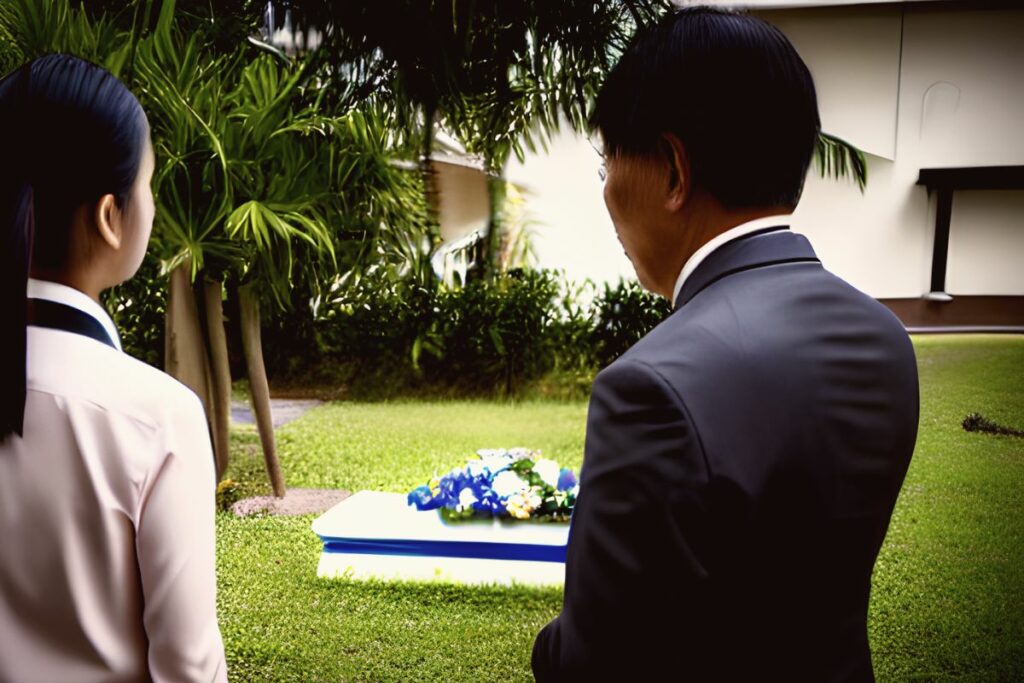When a loved one dies, it is a difficult time. No one deserves to go through this pain and heartache alone, which is why it is important to find the right person to help you with funeral arrangements. Funeral directors are professionals who are trained to help families through this difficult time. In this blog post, we are going to provide you with everything you need to know about funeral directors and how to choose one.
What Does A Funeral Director Do?
When a loved one dies, it can be a difficult time. The funeral director is responsible for making sure that the funeral service is performed according to the family’s wishes and needs. This means that they will work closely with the family to ensure that everything goes as planned. In addition, the funeral director will also be responsible for many of the legalities involved with death, such as paperwork and transporting the body.
When choosing a funeral director, it is important to consider their experience. It’s also important to feel comfortable working with them – they may be a great support during a difficult time. If you’re interested in finding a funeral director who can help you during this difficult time, we recommend visiting our website or contacting us at any time.
What To Expect When Making Funeral Arrangements
Funeral arrangements can be a difficult task to handle on your own, but with the help of a funeral director, it can be made easier. Funeral directors are responsible for the corpse from the moment of death until the moment of burial. They must embalm the body, dress it, and prepare it for viewing.
In addition to arranging funeral services, funeral directors may also be responsible for coordinating transportation of the body and coordinating with cemetery or crematorium. When choosing a funeral director, it is important to find someone who is compassionate and who you can trust to handle the arrangements in a professional and respectful manner.
The funeral director will work with you to choose the type of funeral service that best suits your needs and budget. Funeral services can be held at a church, funeral home, or other location.
You will need to decide whether you want a traditional service with a casket or more modern service with cremation. You will also need to choose which type of funeral merchandise you would like – such as casket, urn, or clothing – as well as which type of ceremony you would like – traditional service or cremation service.
The final step is for your selected funeral director to help make all of these arrangements on your behalf.
How Much Does it Cost to Hire a Funeral Director?
The cost of hiring a funeral director can vary depending on a number of factors, such as the services you need and the location of the funeral home. Generally, funeral directors charge a fee for their services, which can range from $500 to $3,000 or more. This fee typically covers the funeral director’s time and effort in coordinating the funeral, including working with the family to plan the details of the service and making arrangements with the cemetery or crematorium.
In addition to the funeral director’s fee, there are also other costs associated with hiring a funeral director. These can include the cost of the casket or urn, the cost of a gravesite or cremation, and the cost of any additional services you may want, such as a funeral procession or memorial service. These costs can range from a few hundred dollars to several thousands of dollars, depending on the services you choose.
It’s important to keep in mind that funeral directors are not just there to help you plan the funeral, they also provide emotional support and guidance to the family during the grieving process. For many people, the cost of hiring a funeral director is well worth the peace of mind and support they provide.
If you are considering hiring a funeral director, it’s a good idea to shop around and compare prices from different funeral homes in your area. Many funeral homes offer packages that include a range of services at a set price, which can help make the process easier and more affordable. You can also ask for a breakdown of the costs involved, so you know exactly what you are paying for.
What is the Purpose of a Funeral Wake?
Funerals are an important part of the grieving process for many people. They provide an opportunity for friends and family to come together to mourn the loss of a loved one and offer support to each other during a difficult time. One common tradition that often takes place in the days leading up to a traditional funeral is a wake.
But what is a wake and why do people have them?
A wake is a gathering of friends and family that takes place in the days leading up to a funeral. It is an opportunity for people to come together to remember the person who has passed away and to offer support and comfort to one another. Wakes can take place at a funeral parlour, in a private home, or at another location that is meaningful to the family of the deceased.
The purpose of a wake is twofold. First, it provides an opportunity for people to pay their respects to the deceased. This may involve visiting the person’s body, which is typically on display in a casket, and offering condolences to the family. In some cases, people may also say a few words or share a memory of the deceased.
The second purpose of a wake is to provide support and comfort to the family and friends of the deceased. The death of a loved one can be a devastating experience, and the wake provides a space for people to come together to grieve and offer each other support. This can be especially important for those who live far away and may not have the opportunity to see each other as often.
In addition to providing support and comfort, wakes can also serve as a way for people to begin the process of saying goodbye to their loved one. For many people, the act of visiting the deceased and saying goodbye can be an important step in the grieving process.
Wakes can take many different forms. Some are more formal, with a set schedule of events and designated speakers. Others are more relaxed, with people coming and going as they please. Some may include religious rituals or readings, while others may be more secular in nature.
Regardless of the specific form it takes, the purpose of a wake is to provide a space for friends and family to come together to remember and honor the deceased, and to offer support and comfort to one another during a difficult time.
How to Choose a Funeral Director?
When it comes to choosing a funeral director, it’s important to do your research and select the perfect person for the job. Here are some tips that will help you in your quest:.
Begin by asking around. Ask family, friends, and coworkers who have used funeral directors in the past – they will be able to give you a reliable recommendation. They will also be able to let you know if they worked with someone who is sincere and goes the extra mile. Additionally, consider checking out online reviews to get an idea of what people thought of the funeral director before choosing them.
Next, consider the personality of the funeral director. Funeral directors with a warm and caring personality are often better suited for working with families during difficult times. Make sure that you feel comfortable talking with the funeral director, and they are able to cater to your religious beliefs – if you don’t feel at ease, it may be best to look for someone else.
Be sure to check out the range of services that the funeral director provides. Some funerals only involve services like cremation or burial while others offer a more comprehensive package that includes everything from counseling to transportation and memorial videos. It’s important to make sure that your preferences are accommodated by your chosen funeral director so there are no surprises later on down the road.
Finally, make sure that your chosen funeral director is licensed and has references from previous clients who can attest to their skills. In addition, ask whether they can accommodate any specific preferences or needs that you have before making a decision. You wouldn’t want to regret hiring someone who isn’t compatible with your family or lifestyle after death has already taken place!
To Wrap Things Up
A funeral director is a professional who helps families plan funerals. They are responsible for the body of the deceased, the funeral service, and the burial or cremation. Funeral directors work with families to plan the details of the funeral and help them choose the best options for their loved one.


